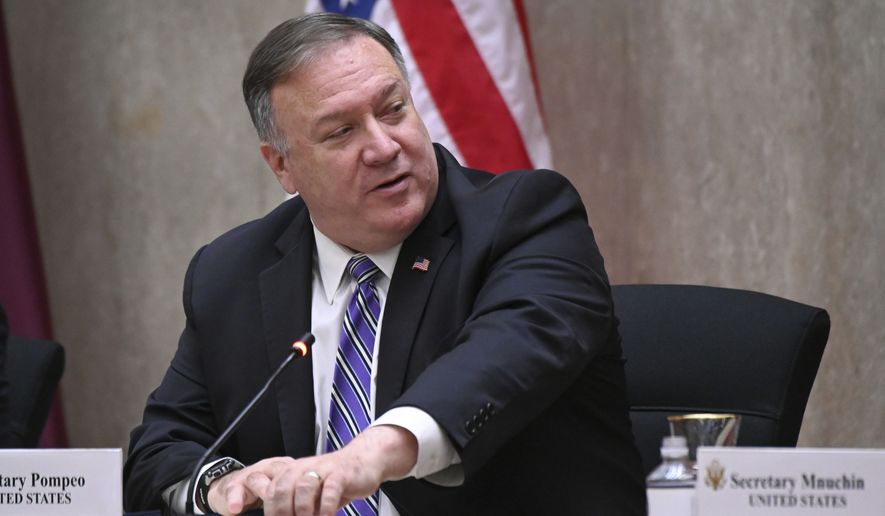OPINION:
The Abraham Accords signed last week, normalizing relations between Israel and two more Arab states, are rightly considered a triumph for the Trump administration.
Perhaps as important, the agreements illuminate the limits of diplomacy and groupthink, the power of indifference and the irresistibility of practical considerations in the realm of foreign policy.
Israel’s new ties with the United Arab Emirates and Bahrain are also a rebuke to the American foreign policy establishment’s bipartisan cluelessness with respect to the Middle East. For 60 years, that establishment has proceeded as if the only answer to the region’s problems was to press the Israelis and the Palestinians into ever more meaningless “talks,” while ignoring the very real truth that the Arab world had and has interests that go well beyond the question of Israel.
The Trump administration was wise to ignore that approach and to proceed as if Israel was a sovereign nation with rights of its own, including the right to determine the location of its capital and to defend its borders. The administration, with Secretary of State Mike Pompeo taking the lead, was also smart in recognizing that the real threats to the Arab world originate, as they have in the past, not from Israel but primarily from the Turks and the Iranians.
Confronted by the civic and institutional deterioration of the last four decades in Syria, Iraq, Lebanon and Libya, coupled with the long-term challenges posed by Iran and Turkey, it was natural for the Arab countries to turn toward collective defense and include in that collective approach their regional and ideological partner, Israel.
This is not to say that the rapprochement between Israel and the Arab world was inevitable, even though it has been the obvious answer for some time.
Mr. Pompeo knew that Iran — not Israel or the House of Saud — is the problem child in the Middle East. Unlike so many others however, he and his boss acted decisively, placing steady pressure on Tehran and, ultimately, killing the mastermind of Iran’s expansionist agenda, Gen. Qassem Soleimani.
Mr. Pompeo and Mr. Trump also reoriented the discussion away from remnants of al Qaeda. The U.S. military currently estimates the terror group has fewer than 300 operatives still active in Afghanistan. It is past time to focus American policy and assets on other, more pressing matters.
Finally, recognizing that the extraordinary surge in American oil and gas production has now made economic diversity an imperative in the Middle East, the president and the secretary of State folded in a generous measure of economic considerations, a dimension that had previously been lacking in the deliberations.
For their part, the Arabs have for some time clearly apprehended that the real immediate threat is posed by Iran, the scavenger states of China and Russia, and the slightly more long-term threat posed by Turkey. In all those contexts, Israel is an ally, in large part because of its ties to the United States, and also because Israel has an enduring interest in ensuring that the Middle East remains peaceful.
Saudi Arabia and its friends share that precise interest. Moreover, the Saudis and the other Gulf states understand the urgent need to diversify and expand their economies. The surge in American oil production means that the ability of Middle East oil states to set and benefit from the price of oil is a relic from the last century.
Finally, as always, practical considerations are dominant. It is reasonable to assume that other nations will soon join the UAE and Bahrain in what is now a multilateral effort to knit together the Middle East. The last piece of the puzzle will be the Palestinians, who have two choices: Join the effort or continue to deteriorate economically and socially.
They will, of course, eventually join — not because of American application of some 19th century-style diplomacy, but because it makes the most sense for them.
This is all bad news for Iran, Turkey, China and Russia, each of whom in their own way has sought to dismember the region. But it is very good news for the United States.
The president deserves credit. So does Secretary Pompeo.
• Michael McKenna, a columnist for The Washington Times, is the president of MWR Strategies. He was most recently a deputy assistant to the president and deputy director of the Office of Legislative Affairs at the White House.




Please read our comment policy before commenting.